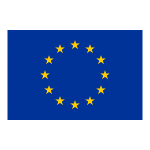OneNet
Goal
The project OneNet, funded by the European Commission, started in October 2020 to address the challenges posed to transmission system operators, distribution system operators, and consumers by the increasing decentralization of the power supply system.
This is an unprecedented challenge that requires an unprecedented solution. For this reason, the two major associations of network operators in Europe, ENTSO-E and EDSO, have activated their members to form a unique consortium.
Led by Fraunhofer FIT (coordinator Prof. Antonello Monti) and Fraunhofer Institute for Digital Energy, the OneNet project aims to develop and demonstrate a European approach to the flexibility and decentralization of the power supply system. Many projects have addressed this topic in the past, but OneNet is unprecedented in scope and size, with a total budget of over 28 million euros (with approximately 22 million euros co-financed by the European Commission).
Benefit
The key elements of the project include defining a common electricity market design for Europe, a common IT architecture and IT interfaces, and large-scale demonstrators to implement and showcase the developed solutions. These demonstrators will be organized into four clusters including countries in all regions of Europe.
Results
OneNet is an open project that can finance additional projects through what is known as cascading funding, thereby welcoming new members into the consortium. OneNet calls for the creation of a unified vision for the European electricity market, inviting operators, consumers, and stakeholders across Europe to contribute. To facilitate this, the project will develop an open forum called »GRIFOn« a platform for free discussion of the project's findings with all relevant stakeholders outside of the project.
Project Partners

Funding: Europäische Union
Partners:
The OneNet consortium consists of over 70 partners. Key partners include: ENTSO-E und EDSO, Elering, EDP Distribution, RWTH Aachen University, University of Comillas, VITO, European Dynamics, Ubitech, Engineering und die EUI’s Florence School of Regulation (Energy).
